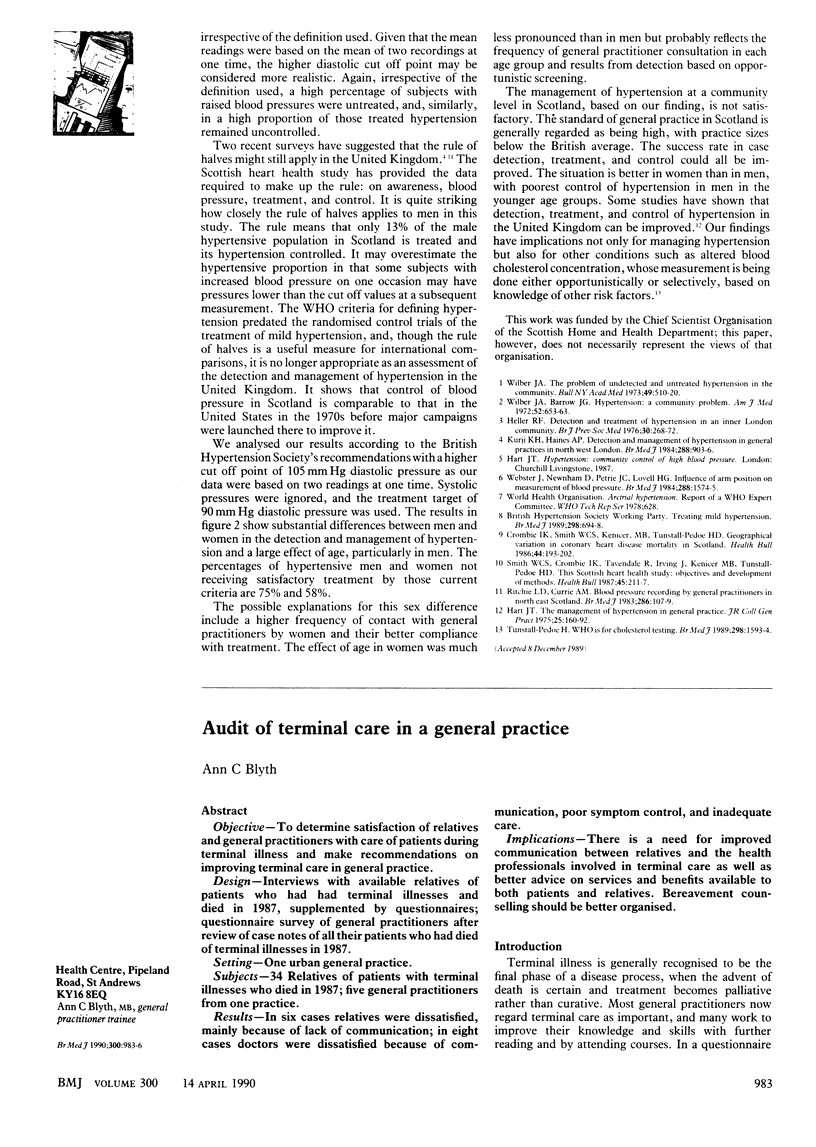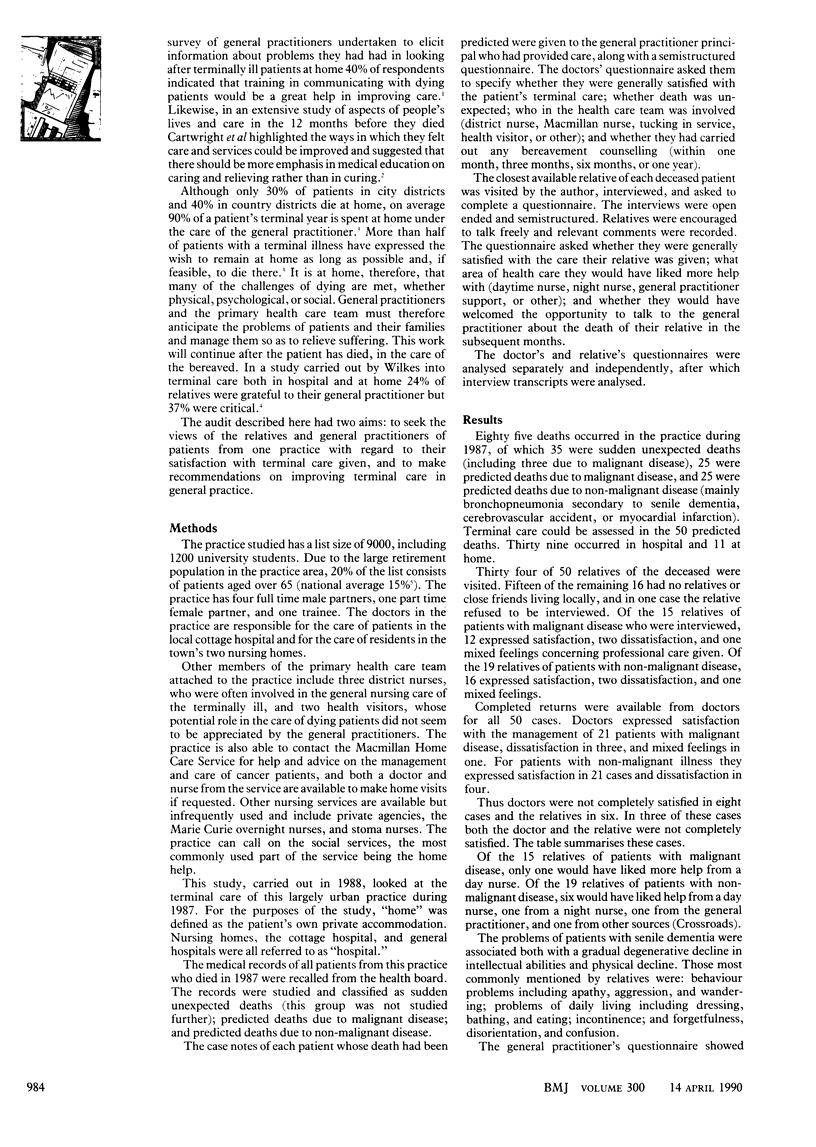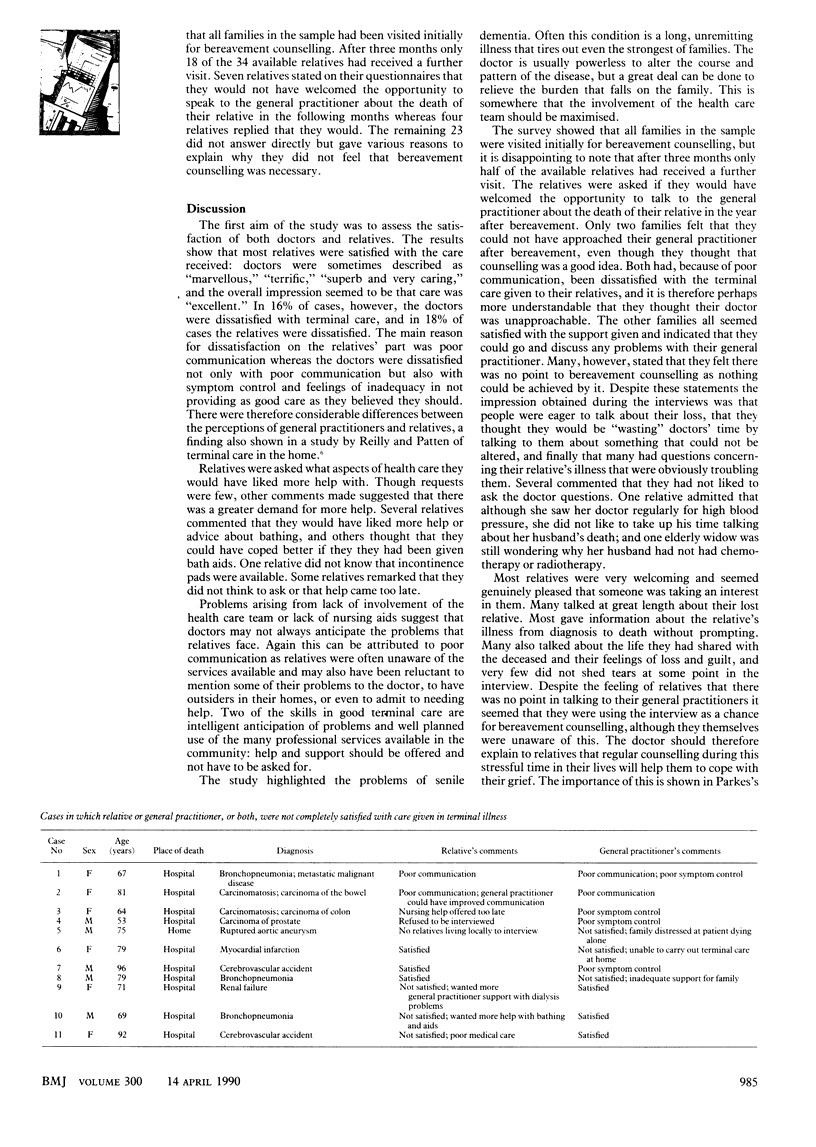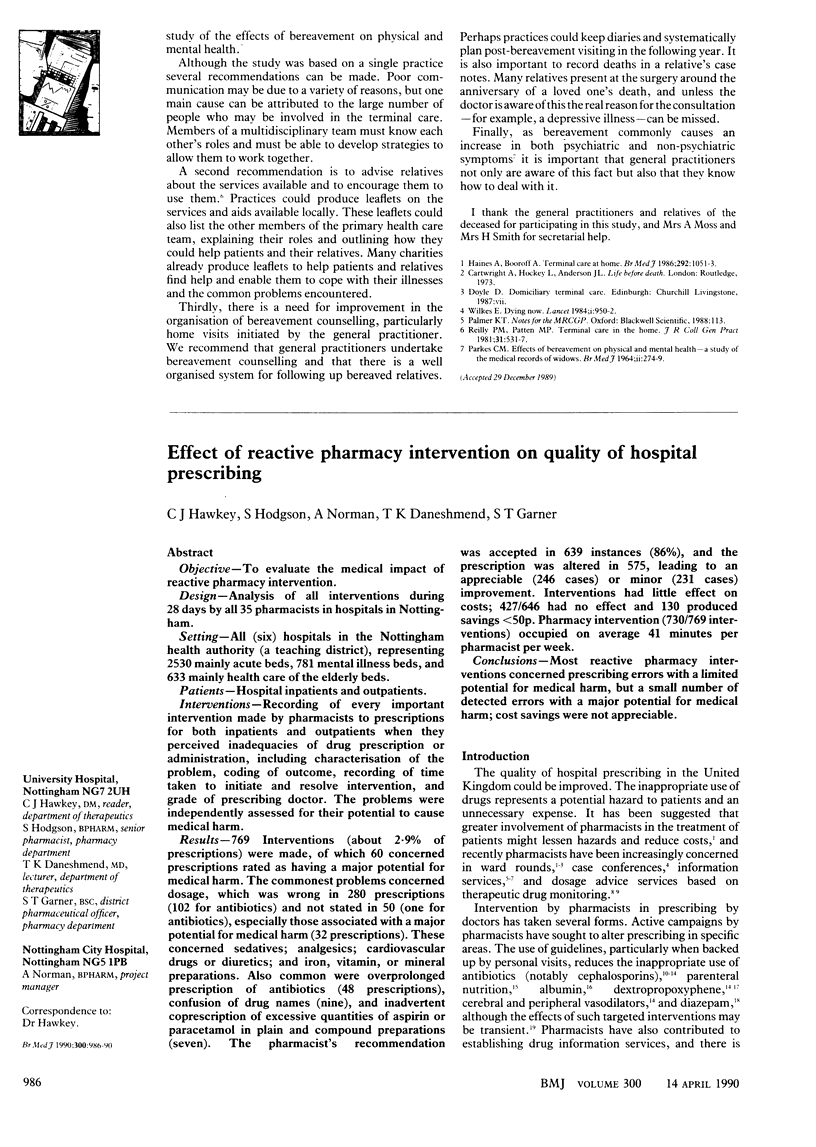Abstract
OBJECTIVE--To determine satisfaction of relatives and general practitioners with care of patients during terminal illness and make recommendations on improving terminal care in general practice. DESIGN--Interviews with available relatives of patients who had had terminal illnesses and died in 1987, supplemented by questionnaires; questionnaire survey of general practitioners after review of case notes of all their patients who had died of terminal illnesses in 1987. SETTING--One urban general practice. SUBJECTS--34 Relatives of patients with terminal illnesses who died in 1987; five general practitioners from one practice. RESULTS--In six cases relatives were dissatisfied, mainly because of lack of communication; in eight cases doctors were dissatisfied because of communication, poor symptom control, and inadequate care. IMPLICATIONS--There is a need for improved communication between relatives and the health professionals involved in terminal care as well as better advice on services and benefits available to both patients and relatives. Bereavement counselling should be better organised.
Full text
PDF



Selected References
These references are in PubMed. This may not be the complete list of references from this article.
- Haines A., Booroff A. Terminal care at home: perspective from general practice. Br Med J (Clin Res Ed) 1986 Apr 19;292(6527):1051–1053. doi: 10.1136/bmj.292.6527.1051. [DOI] [PMC free article] [PubMed] [Google Scholar]
- PARKES C. M. EFFECTS OF BEREAVEMENT ON PHYSICAL AND MENTAL HEALTH--A STUDY OF THE MEDICAL RECORDS OF WIDOWS. Br Med J. 1964 Aug 1;2(5404):274–279. doi: 10.1136/bmj.2.5404.274. [DOI] [PMC free article] [PubMed] [Google Scholar]
- Wilkes E. Dying now. Lancet. 1984 Apr 28;1(8383):950–952. doi: 10.1016/s0140-6736(84)92400-0. [DOI] [PubMed] [Google Scholar]


